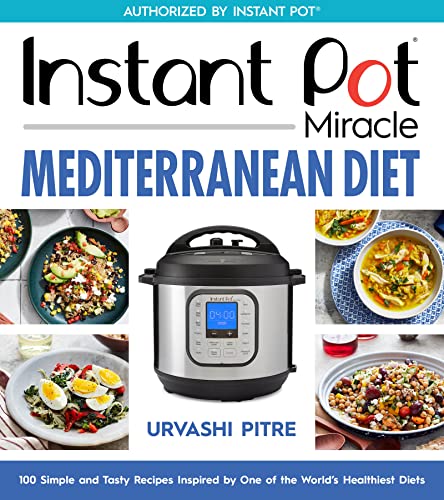Table of Contents
- The Essence of the Mediterranean Diet
- Abundance of Plant-Based Foods
- Healthy Fats
- Moderate Consumption of Dairy
- Lean Protein
- Flavorful Herbs and Spices
- Wine in Moderation
- Heart-Healthy Fats in the Mediterranean Diet
- Cardiovascular Health
- Rich in Antioxidants
- Brain Health
- Weight Management
- Embracing the Mediterranean Way of Life
In the world of diets and nutrition, few regimens have garnered as much attention and acclaim as the Mediterranean diet. Known for its rich flavors, abundance of fresh ingredients and health benefits, the Mediterranean diet is a celebration of delicious cuisine that promotes heart-healthy fats. In this article, we will explore the essence of the Mediterranean diet, emphasizing its emphasis on heart-healthy fats and delve into why it’s not just a diet but a way of life that promotes longevity and well-being.
“In a world filled with countless dietary trends and fads, the Mediterranean diet stands out as a timeless and cherished approach to nourishing the body and soul. Its enduring popularity can be attributed to its unique blend of flavorful traditions, an abundance of fresh and wholesome ingredients and a scientific foundation in promoting heart-healthy fats.
The Mediterranean diet is not just a list of do’s and don’ts; it’s a culinary journey that transports you to the sun-soaked shores of the Mediterranean Sea. With every dish infused with rich flavors, you’ll discover a vibrant tapestry of tastes that not only tantalizes the taste buds but also elevates your overall well-being.
At its core, this dietary pattern places a premium on heart-healthy fats, with extra virgin olive oil taking center stage as the liquid gold of the Mediterranean. This focus on healthy fats reflects the wisdom of generations who recognized the importance of a balanced and nourishing diet in maintaining good health.
But the Mediterranean diet is more than just a set of nutritional guidelines; it’s a way of life that fosters a profound connection between food, culture and health. It’s about gathering with loved ones around a table laden with colorful dishes, enjoying leisurely meals and relishing the simple pleasures of life. This holistic approach extends beyond the dinner plate, emphasizing the importance of regular physical activity, stress management and the cultivation of strong social ties – all contributing factors to a long and fulfilling life.
As we explore the Mediterranean diet in depth, we’ll uncover the science behind its heart-healthy benefits, delve into the role of antioxidants and phytonutrients in promoting vitality and provide practical tips on how to embrace this lifestyle, no matter where you are in the world.
So, let’s embark on a culinary adventure through the Mediterranean diet, where every bite is a step towards greater well-being and every meal is an opportunity to celebrate the art of savoring life’s pleasures. It’s not just a diet; it’s a journey towards a healthier, more vibrant and joyful you.”
To delve further into this matter, we encourage you to check out the additional resources provided here: Mediterranean Diet | Oldways
The Essence of the Mediterranean Diet
The Mediterranean diet is inspired by the eating patterns of countries bordering the Mediterranean Sea, such as Greece, Italy, Spain and southern France. It is characterized by the following key principles:
The Mediterranean Diet: A Nutritional Heritage
The Mediterranean diet stands as a culinary and nutritional treasure, drawing inspiration from the traditional eating patterns of countries nestled along the sun-drenched shores of the Mediterranean Sea. This dietary approach has not only captured the hearts of food enthusiasts but has also garnered attention from health experts for its remarkable health benefits. Let’s delve into the key principles that define this flavorful and wholesome way of eating:
1. Abundance of Fresh, Colorful Produce: At the heart of the Mediterranean diet lies an abundance of fresh fruits and vegetables. From the vibrant red of ripe tomatoes to the deep green of leafy greens, the diet encourages a colorful array of produce. These fruits and vegetables are not just a source of vitamins and minerals but also a rich storehouse of antioxidants that promote good health.
2. Embrace Healthy Fats: Unlike many Western diets that shun fats, the Mediterranean diet celebrates healthy fats as a cornerstone of its approach. Olive oil takes center stage as the primary source of dietary fat, delivering monounsaturated fats that are known for their heart-protective properties. Additionally, the diet includes nuts, seeds and fatty fish like salmon and sardines, providing essential omega-3 fatty acids.
3. Whole Grains Galore: The Mediterranean diet favors whole grains like whole wheat, brown rice and oats over refined grains. These whole grains are a fantastic source of fiber, which not only aids in digestion but also helps maintain stable blood sugar levels.
4. Lean Proteins: While red meat makes an occasional appearance, the Mediterranean diet leans heavily toward lean sources of protein. Fish and seafood, including favorites like grilled sardines or baked salmon, are staples. Poultry, such as chicken or turkey and legumes like lentils and chickpeas, offer additional sources of protein that are low in saturated fat.
5. Dairy in Moderation: Dairy products, particularly yogurt and cheese, are part of the Mediterranean diet but in moderation. Greek yogurt, with its creamy texture and probiotic benefits, is a beloved choice. Cheese, while enjoyed sparingly, adds a burst of flavor to many dishes.
6. Herbs and Spices: The Mediterranean diet relies on herbs and spices to season dishes instead of excessive salt. The aromatic blend of basil, oregano, rosemary and garlic infuses dishes with enticing flavors while contributing to the diet’s healthful nature.
7. Wine in Moderation: The diet often includes a glass of red wine, especially during meals. Red wine is cherished for its potential heart-protective properties when consumed in moderation, thanks to antioxidants like resveratrol.
8. Social and Active Lifestyle: Beyond the plate, the Mediterranean diet embraces a broader way of life. It encourages social interactions, leisurely dining and an active lifestyle, factors that contribute to overall well-being.
9. Sustainability and Mindful Eating: The Mediterranean diet often incorporates locally sourced and seasonal ingredients, promoting sustainability. It encourages mindful eating, savoring each bite and fostering a deeper connection to food.
The Mediterranean diet, with its emphasis on fresh, whole foods and balanced nutrition, offers not only a delightful culinary journey but also a path to improved health and longevity. Its rich tapestry of flavors and textures not only nourishes the body but also nourishes the soul, reminding us that healthy eating can be a delightful and sustainable way of life.
Should you desire more in-depth information, it’s available for your perusal on this page: Obesity and the Mediterranean Diet: A Review of Evidence of the …

Abundance of Plant-Based Foods
Fruits, vegetables, whole grains, legumes and nuts form the foundation of this diet. These foods are rich in essential vitamins, minerals and fiber.
Fruits, vegetables, whole grains, legumes and nuts form the foundation of this diet. These foods are rich in essential vitamins, minerals and fiber, making them the cornerstone of a health-conscious eating plan.
Abundant Vitamins and Minerals: Fruits and vegetables, in particular, are a treasure trove of vitamins and minerals that are vital for various bodily functions. For instance, oranges and strawberries are bursting with vitamin C, which boosts the immune system and aids in collagen production for healthy skin. Leafy greens like spinach and kale are packed with iron and calcium, crucial for maintaining strong bones and overall vitality.
Fiber-Rich Goodness: Whole grains, legumes and nuts are fiber powerhouses. Fiber is the unsung hero of a well-rounded diet, promoting digestive health, regulating blood sugar levels and aiding in weight management. It also offers a sense of fullness and satisfaction after meals, reducing the temptation for unhealthy snacking.
Antioxidant Protection: The colorful array of fruits and vegetables is not just visually appealing; it’s also a sign of the diverse antioxidants they contain. Antioxidants help combat free radicals in the body, reducing oxidative stress and lowering the risk of chronic diseases such as cancer and heart disease. Berries, in particular, are known for their high antioxidant content.
Plant-Based Protein: Legumes and nuts are excellent sources of plant-based protein. They provide essential amino acids needed for muscle maintenance and overall body function. Incorporating these into your diet can be particularly beneficial for those looking to reduce their meat consumption or embrace a more plant-centric eating approach.
Disease Prevention: A diet centered around these food groups has been linked to a lower risk of chronic diseases, including type 2 diabetes, hypertension and certain types of cancer. The combination of vitamins, minerals, fiber and antioxidants can create a protective shield for your health.
Digestive Health: Fiber-rich foods aid in maintaining a healthy gut. They promote the growth of beneficial gut bacteria, which, in turn, can boost the immune system, improve nutrient absorption and even support mental well-being. A healthy gut is often considered the foundation of overall wellness.
Variety and Culinary Creativity: Embracing these foundational foods doesn’t mean you have to sacrifice variety or flavor in your meals. In fact, it opens the door to culinary creativity. Think of the countless ways you can prepare a salad, stir-fry vegetables or incorporate whole grains and legumes into soups, stews and salads. The possibilities are endless.
In conclusion, a diet built on fruits, vegetables, whole grains, legumes and nuts provides a solid nutritional foundation that can lead to improved health, increased vitality and a lower risk of chronic diseases. These foods offer a symphony of flavors, textures and nutrients that make healthy eating not only beneficial but also enjoyable. So, the next time you plan your meals, remember to stack your plate with these wholesome, nutrient-rich ingredients for a vibrant and nourishing culinary experience.
You can also read more about this here: The Mediterranean Diet: A Delicious Path to Longevity and Wellness …

Healthy Fats
The Mediterranean diet embraces healthy fats, primarily in the form of olive oil. Olive oil is a staple in Mediterranean cuisine and is rich in monounsaturated fats, which are beneficial for heart health.
The Mediterranean diet stands as a beacon of balanced and heart-healthy eating patterns and at its core lies the appreciation for healthy fats, prominently exemplified by the use of olive oil. This liquid gold is not just a culinary preference but a nutritional treasure trove that embodies the essence of Mediterranean cuisine. Let’s delve deeper into the virtues of olive oil and its role in promoting heart health within this iconic dietary regimen.
Olive Oil’s Monounsaturated Magic: Olive oil is renowned for its abundance of monounsaturated fats, particularly oleic acid. These fats are recognized as heart-protective because they can help lower levels of LDL (bad) cholesterol while preserving HDL (good) cholesterol, contributing to improved cardiovascular health.
Anti-Inflammatory Properties: Olive oil contains bioactive compounds, such as polyphenols, that possess anti-inflammatory properties. Chronic inflammation is a known contributor to various chronic diseases, including heart disease. Incorporating olive oil into the diet can help mitigate this risk.
Rich in Antioxidants: The Mediterranean diet’s heavy reliance on olive oil means an increased intake of antioxidants. These compounds counteract the damaging effects of free radicals in the body, reducing oxidative stress and supporting overall well-being.
Blood Pressure Regulation: Consuming olive oil has been associated with improved blood pressure regulation. The monounsaturated fats and antioxidants in olive oil play a role in maintaining healthy blood vessels, which, in turn, helps manage blood pressure within a healthy range.
Versatility in Cooking: Olive oil’s versatility in cooking is a culinary boon. Whether drizzled over salads, used in sautéing vegetables or as a dipping sauce for bread, it adds a distinct and delightful flavor to dishes while providing its heart-healthy benefits.
Culinary Tradition: Beyond its health benefits, olive oil carries cultural and historical significance in Mediterranean traditions. It’s not just an ingredient but a symbol of the Mediterranean way of life, steeped in centuries of culinary heritage and the timeless enjoyment of flavorful, nourishing food.
Weight Management: Contrary to common misconceptions, the inclusion of olive oil in the Mediterranean diet can support weight management. The sensation of satiety it imparts can lead to reduced calorie consumption, making it easier to maintain a healthy weight.
Sustainability and Longevity: The Mediterranean diet, with olive oil as a central component, has been linked to increased life expectancy and a reduced risk of chronic diseases. Its sustainability, both in terms of health and environmental impact, underscores its value as a long-term dietary choice.
In conclusion, the Mediterranean diet’s embrace of olive oil exemplifies the harmonious synergy between culinary delight and heart health. This golden elixir, rich in monounsaturated fats, antioxidants and anti-inflammatory properties, nourishes both the body and the soul. By incorporating olive oil into our dietary choices, we not only savor its exquisite flavors but also celebrate a legacy of well-being that spans generations and embodies the essence of the Mediterranean way of life. It’s a reminder that the pursuit of health can be a joyful and culturally enriching journey.
If you’d like to dive deeper into this subject, there’s more to discover on this page: What goes into a Mediterranean diet, and how to get started …

Moderate Consumption of Dairy
Dairy products, particularly yogurt and cheese, are consumed in moderation.
Moderation is a key principle when it comes to the consumption of dairy products, with a particular focus on yogurt and cheese. These foods, while rich in nutrients, can also have varying impacts on health depending on factors like portion size, preparation methods and individual dietary needs. Embracing moderation in dairy consumption allows us to strike a balance between reaping the benefits and avoiding potential drawbacks.
Nutrient-Rich Choices: Dairy products, including yogurt and cheese, are notable for their nutritional value. They are excellent sources of calcium, which is crucial for bone health, as well as protein, essential vitamins and minerals. Yogurt, in particular, contains probiotics that support gut health. By consuming these dairy products in moderation, we can harness their nutritional benefits without overloading on certain nutrients, such as saturated fats.
Managing Fat Intake: While dairy products provide essential nutrients, they can also contain saturated fats, which, when consumed in excess, may contribute to cardiovascular health concerns. Moderation helps in managing our saturated fat intake. Opting for low-fat or reduced-fat versions of yogurt and cheese can be a practical strategy to enjoy these dairy options while keeping an eye on overall fat consumption.
Caloric Balance: For individuals mindful of their calorie intake, moderation in dairy consumption is crucial. Yogurt and cheese can be calorie-dense and portion control ensures that we maintain a caloric balance that aligns with our dietary goals. Smaller servings can be incorporated into meals and snacks to provide flavor, texture and nutrition without excessive caloric intake.
Lactose Sensitivity: Some individuals may have lactose intolerance, which can cause digestive discomfort when consuming dairy products. In such cases, moderation is essential. Many dairy alternatives, like lactose-free yogurt and cheese, are available to accommodate dietary needs while minimizing digestive issues.
Diverse Dietary Patterns: Moderation in dairy consumption allows individuals to follow diverse dietary patterns and preferences. Whether one adheres to a traditional Western diet or opts for plant-based or dairy-free alternatives, moderation ensures flexibility and accommodates a range of dietary choices.
Sustainability Considerations: Dairy production can have environmental implications, such as greenhouse gas emissions and water usage. Moderation in dairy consumption can align with sustainability goals by reducing the overall demand for dairy products and encouraging mindful choices that prioritize environmental impact.
Cultural Variability: Different cultures and cuisines have varying degrees of reliance on dairy products. Embracing moderation recognizes the cultural diversity in dietary practices and encourages respect for individual choices and traditions.
In summary, moderation in the consumption of dairy products, including yogurt and cheese, allows us to enjoy their nutritional benefits while being mindful of potential drawbacks. It is a flexible approach that can be tailored to individual dietary preferences, health considerations and sustainability goals. By striking a balance in dairy consumption, we can make informed dietary choices that align with our overall well-being and values.
To expand your knowledge on this subject, make sure to read on at this location: The Mediterranean Diet: From an Environment-Driven Food Culture …

Lean Protein
Poultry, fish and seafood are preferred sources of protein, with limited red meat consumption.
Embracing a diet that prioritizes poultry, fish and seafood as primary sources of protein while limiting red meat consumption is a health-conscious choice with a myriad of benefits. This dietary approach not only promotes personal well-being but also has positive implications for the environment and sustainability:
Lean Protein: Poultry, fish and seafood offer lean protein options that are rich in essential nutrients like vitamins, minerals and omega-3 fatty acids. These nutrients are vital for muscle health, immune function and overall vitality.
Heart Health: Choosing poultry, fish and seafood over red meat can have a positive impact on heart health. Red meat, especially when consumed in excess, has been associated with an increased risk of heart disease due to its saturated fat content. Opting for leaner protein sources can help maintain healthy cholesterol levels and reduce cardiovascular risk.
Weight Management: Lean protein sources are a staple in weight management and healthy eating plans. They are filling, satisfying and can help control appetite, making it easier to maintain a healthy weight.
Reduced Risk of Chronic Diseases: A diet focused on poultry, fish and seafood can lower the risk of chronic diseases, such as type 2 diabetes and certain types of cancer, when compared to diets high in red meat consumption.
Environmental Impact: Reducing red meat consumption contributes to environmental sustainability. The production of red meat, particularly beef, is associated with higher greenhouse gas emissions, land use and water consumption. Shifting toward poultry, fish and seafood reduces the ecological footprint of one’s diet.
Sustainable Seafood Choices: When selecting seafood, choosing sustainably sourced options can further support environmental conservation. Sustainable seafood practices prioritize responsible fishing and aquaculture methods that protect marine ecosystems and seafood stocks for future generations.
Diversity in Nutrient Intake: Incorporating a variety of poultry, fish and seafood into the diet diversifies nutrient intake. Different types of fish, for example, offer a range of nutrients, including vitamin D, iodine and selenium, which can be lacking in red meat.
Cultural and Culinary Exploration: Embracing poultry, fish and seafood opens doors to a world of culinary exploration. There are countless delicious and culturally diverse recipes that celebrate these protein sources, from Mediterranean seafood paellas to Japanese sushi and Indian tandoori chicken.
Ethical Considerations: Some individuals choose to limit red meat consumption for ethical reasons related to animal welfare. Poultry, fish and seafood options can align more closely with ethical dietary preferences.
Adaptability: A diet centered around poultry, fish and seafood is adaptable and accommodating to various dietary preferences and restrictions, including pescatarian and Mediterranean diets.
In conclusion, shifting the focus of one’s protein intake toward poultry, fish and seafood while reducing red meat consumption is a health-conscious choice with a multitude of benefits. It not only supports personal well-being but also aligns with broader environmental and ethical considerations. By making mindful dietary choices, individuals can enjoy a diverse and nourishing diet that promotes a healthier self and a healthier planet.
Additionally, you can find further information on this topic by visiting this page: BLOG | Happea’s

Flavorful Herbs and Spices
The Mediterranean diet relies on herbs and spices like garlic, basil and oregano for flavor, reducing the need for excessive salt.
The Mediterranean diet, celebrated for its health benefits, showcases a brilliant culinary strategy rooted in nature’s bounty. It harmoniously combines an array of herbs and spices, such as garlic, basil and oregano, to infuse dishes with a burst of exquisite flavor. This natural flavor enhancement is a game-changer, significantly reducing the reliance on excessive salt.
Garlic, with its pungent aroma and robust taste, is the heart and soul of many Mediterranean dishes. It not only adds depth to recipes but also brings a wealth of health benefits, from promoting heart health to boosting the immune system. In this diet, garlic serves as a flavorful bridge between nourishment and well-being.
Basil, with its sweet, aromatic notes, transports the senses to sun-drenched Mediterranean landscapes. It’s a staple in sauces, salads and pesto, offering a burst of freshness that tantalizes the palate. Beyond its deliciousness, basil also delivers essential nutrients and antioxidants, contributing to the diet’s overall nutritional excellence.
Oregano, an herb bursting with earthy and slightly peppery flavors, further enriches Mediterranean cuisine. It’s a key player in countless Mediterranean recipes, imparting a unique character that is hard to replicate. Oregano’s inclusion not only enhances taste but also provides antimicrobial properties and a rich supply of vitamins and minerals.
By embracing these herbs and spices, the Mediterranean diet stands as a beacon of culinary wisdom. It showcases how the mastery of natural flavors can render excess salt obsolete while creating dishes that not only nourish the body but also delight the senses. In doing so, it paints a portrait of a balanced and wholesome approach to eating that is as timeless as the region it hails from.
Don’t stop here; you can continue your exploration by following this link for more details: Slide show: The Mediterranean diet – Mayo Clinic

Wine in Moderation
Red wine, consumed in moderation, is often enjoyed with meals and is believed to have heart-protective properties.
The tradition of savoring a glass of red wine with a meal is not only a pleasurable aspect of culinary culture but also an association with potential heart-protective properties, supported by scientific research. Here’s a deeper exploration of why red wine, when enjoyed in moderation, holds this esteemed place in the world of gastronomy and health:
The French Paradox: One of the early sparks of interest in the heart-protective qualities of red wine came from the “French Paradox.” Despite a diet relatively high in saturated fats, the French have exhibited lower rates of coronary heart disease compared to some other Western countries. This phenomenon was linked, in part, to their regular consumption of red wine.
Antioxidant Richness: Red wine contains a variety of antioxidants, notably resveratrol, which is found in the skin of grapes. Resveratrol is believed to play a role in protecting the lining of blood vessels, reducing “bad” cholesterol and preventing blood clots.
Anti-Inflammatory Properties: Inflammation is a key factor in the development of heart disease. Some components in red wine have anti-inflammatory properties, potentially contributing to cardiovascular health.
Endothelial Function: Red wine consumption has been associated with improved endothelial function, which refers to the ability of blood vessels to dilate and contract effectively. Healthy endothelial function is crucial for maintaining blood flow and preventing artery damage.
Blood Pressure Regulation: Moderate red wine consumption may help regulate blood pressure. It has been suggested that certain compounds in red wine can relax blood vessels, leading to a mild reduction in blood pressure.
Stress Reduction: The act of enjoying a glass of red wine with a meal can promote relaxation and reduce stress—an indirect benefit for heart health. Lower stress levels can contribute to better overall cardiovascular well-being.
Diverse Heart-Healthy Nutrients: Red wine is part of a Mediterranean-style diet that includes heart-healthy foods like fruits, vegetables, olive oil and lean proteins. This dietary pattern is associated with lower rates of heart disease.
Moderation is Key: It’s essential to emphasize that the heart-protective effects of red wine are associated with moderate consumption. Excessive alcohol consumption can have detrimental health effects, including an increased risk of heart disease.
Individual Variation: It’s important to note that the impact of red wine on heart health can vary from person to person. Genetics, overall diet and lifestyle factors all play a role in how red wine affects an individual’s cardiovascular profile.
Consultation with a Healthcare Professional: Before making any significant dietary changes, especially those involving alcohol consumption, it’s advisable to consult with a healthcare professional. They can provide personalized guidance based on individual health status and risk factors.
In summary, the notion of red wine’s potential heart-protective properties is a captivating interplay of tradition, science and the art of mindful moderation. While it’s not a panacea for heart disease, red wine, when enjoyed as part of a balanced diet and healthy lifestyle, can be a delightful and potentially beneficial addition to the table—a reminder that the pleasures of life and health can harmoniously coexist when approached with balance and appreciation.
To delve further into this matter, we encourage you to check out the additional resources provided here: Staying Healthy Newsletter – Embracing the Mediterranean-Style Diet

Heart-Healthy Fats in the Mediterranean Diet
One of the standout features of the Mediterranean diet is its emphasis on heart-healthy fats. These fats are primarily found in olive oil, which is a cornerstone of Mediterranean cuisine. Olive oil is abundant in monounsaturated fats, particularly oleic acid, which has been associated with numerous health benefits:
One of the standout features of the Mediterranean diet, renowned for its potential to promote overall well-being and longevity, is its unwavering emphasis on heart-healthy fats. At the heart of this dietary pattern lies a culinary gem that has been cherished for centuries – olive oil. Olive oil is not just a cooking ingredient; it is a symbol of the Mediterranean way of life, a cornerstone of the region’s rich gastronomic tradition.
Olive oil’s exceptional reputation as a heart-healthy fat is well-deserved and it owes much of its acclaim to its abundant content of monounsaturated fats, with a special spotlight on oleic acid. These monounsaturated fats have been the subject of extensive research and have been associated with a multitude of health benefits that go far beyond merely nourishing the body:
1. Cardiovascular Health: Oleic acid, the predominant monounsaturated fat in olive oil, has demonstrated a remarkable ability to support heart health. It is known to reduce levels of LDL (low-density lipoprotein) cholesterol, often referred to as “bad” cholesterol, while leaving HDL (high-density lipoprotein) cholesterol, the “good” kind, untouched. This favorable cholesterol profile is pivotal in reducing the risk of cardiovascular diseases, including heart attacks and strokes.
2. Anti-Inflammatory Properties: Oleic acid possesses potent anti-inflammatory properties, playing a crucial role in mitigating chronic inflammation, a recognized driver of many diseases. By incorporating olive oil into your diet, you not only tantalize your taste buds with its rich, fruity notes but also embark on a journey toward better health.
3. Antioxidant Benefits: Olive oil is a treasure trove of antioxidants, which help combat oxidative stress and free radicals in the body. These antioxidants are believed to contribute to the prevention of chronic diseases, including certain types of cancer and neurodegenerative conditions like Alzheimer’s disease.
4. Improved Blood Sugar Control: Emerging research suggests that incorporating olive oil into your meals may support better blood sugar control, particularly in individuals with type 2 diabetes. This effect is attributed to the monounsaturated fats’ ability to enhance insulin sensitivity.
5. Enhanced Nutrient Absorption: Olive oil’s presence in a meal can enhance the absorption of fat-soluble vitamins, such as vitamins A, D, E and K and various beneficial phytochemicals present in other foods. This synergistic effect underscores the importance of using olive oil as a culinary ally in nutrient-rich dishes.
In conclusion, olive oil, a treasured staple of the Mediterranean diet, boasts a rich profile of monounsaturated fats, particularly oleic acid, that confer a plethora of health benefits. Its role in promoting cardiovascular health, reducing inflammation and supporting overall well-being is well-established in the realm of nutrition science. By embracing the Mediterranean tradition of incorporating olive oil into your dietary choices, you not only savor its exquisite taste but also reap the rewards of a heart-healthy and delicious path to wellness.
Should you desire more in-depth information, it’s available for your perusal on this page: Is the Mediterranean Diet Heart-Healthy? | Bon Secours Blog

Cardiovascular Health
Monounsaturated fats are known to improve heart health by reducing levels of bad cholesterol (LDL) and lowering the risk of heart disease. They also have anti-inflammatory properties that protect the blood vessels.
Monounsaturated fats, often celebrated as heart-healthy fats, have garnered attention in the world of nutrition and wellness for their remarkable benefits that go beyond simply adding flavor to our meals. These fats play a pivotal role in supporting cardiovascular health and overall well-being.
Championing Heart Health: Monounsaturated fats have emerged as champions in the battle for heart health. One of their standout qualities is their ability to lower levels of low-density lipoprotein (LDL) cholesterol, often referred to as “bad” cholesterol. High LDL cholesterol is a known risk factor for heart disease, making the cholesterol-lowering effects of monounsaturated fats a significant boon for cardiovascular wellness.
Protecting Blood Vessels: The benefits of monounsaturated fats extend to the very vessels that carry life-sustaining blood throughout our bodies. These fats possess potent anti-inflammatory properties that help safeguard the delicate lining of blood vessels. Inflammation within blood vessels can lead to the development of atherosclerosis, a condition characterized by the buildup of plaque. By reducing inflammation, monounsaturated fats contribute to the prevention of atherosclerosis and its associated complications, including heart attacks and strokes.
Balancing Fatty Acids: A well-rounded diet includes a balanced intake of different types of fats. Monounsaturated fats, along with polyunsaturated fats and omega-3 fatty acids, form an essential part of this dietary balance. Consuming these fats in the right proportions helps regulate lipid profiles, maintain healthy blood pressure and promote overall cardiovascular harmony.
Sources of Monounsaturated Fats: The beauty of monounsaturated fats lies in their delicious sources. Some of the most celebrated foods rich in these heart-healthy fats include avocados, olive oil, nuts (such as almonds, peanuts and cashews) and seeds (like sunflower seeds and pumpkin seeds). Incorporating these delectable options into your daily diet not only enhances flavor but also contributes to your heart’s well-being.
Long-Term Wellness: The positive impact of monounsaturated fats on heart health isn’t just a short-term benefit; it’s a long-term investment in your wellness. A diet that includes these fats can lead to improved cardiovascular outcomes over time, reducing the risk of heart disease and providing a foundation for a vibrant, active and healthy life.
Culinary Versatility: The culinary world has embraced monounsaturated fats for their versatility. Olive oil, in particular, has become a staple in kitchens around the globe, gracing salads, sautés and marinades with its rich, fruity notes. This culinary adaptability allows individuals to savor the benefits of monounsaturated fats in a wide range of delicious dishes.
In conclusion, the remarkable attributes of monounsaturated fats make them an essential component of a heart-healthy diet. Their LDL cholesterol-lowering effects, anti-inflammatory properties and contribution to overall cardiovascular wellness are testaments to their nutritional value. By embracing sources of monounsaturated fats in your diet, you not only enhance the flavor of your meals but also nurture the health and vitality of your heart, ensuring that it continues to beat strong for years to come.
For additional details, consider exploring the related content available here What goes into a Mediterranean diet, and how to get started …

Rich in Antioxidants
Olive oil contains antioxidants like vitamin E and phenolic compounds, which help combat oxidative stress and inflammation in the body.
Olive oil, often celebrated as one of the cornerstones of the heart-healthy Mediterranean diet, boasts a remarkable array of health benefits, primarily attributed to its potent antioxidants such as vitamin E and phenolic compounds. These natural defenders play a pivotal role in promoting overall well-being by combatting oxidative stress and inflammation within the body.
Antioxidant Arsenal: Olive oil is a rich source of vitamin E, a powerful fat-soluble antioxidant known for its ability to neutralize harmful free radicals. These unstable molecules can cause cellular damage and are associated with various chronic diseases, including cancer and cardiovascular conditions. By providing ample vitamin E, olive oil acts as a shield, helping to protect your cells from oxidative harm.
Phenolic Power: Phenolic compounds found in olive oil are another potent group of antioxidants. These compounds, including hydroxytyrosol and oleuropein, are renowned for their anti-inflammatory properties. They work to quell the fires of inflammation within the body, reducing the risk of chronic diseases influenced by excessive inflammation, such as arthritis and certain types of cancer.
Heart Health Champion: The antioxidant-rich composition of olive oil is closely linked to its cardiovascular benefits. It helps lower the oxidation of LDL cholesterol particles, making them less likely to contribute to the formation of arterial plaques. This action reduces the risk of atherosclerosis and its associated complications, like heart attacks and strokes.
Aging Gracefully: Olive oil’s antioxidants are not only protective but also have potential anti-aging effects. By combating oxidative stress, they may help preserve the youthful integrity of skin cells, contributing to a smoother complexion and delaying the signs of aging.
Brain Boost: Emerging research suggests that the antioxidants in olive oil may also support brain health. By reducing oxidative stress and inflammation in the brain, they could potentially play a role in cognitive preservation and a reduced risk of neurodegenerative diseases like Alzheimer’s.
Digestive Comfort: Olive oil’s anti-inflammatory properties extend to the digestive system. They may help soothe gastrointestinal discomfort and reduce the risk of digestive disorders associated with chronic inflammation.
Versatile Culinary Applications: Incorporating olive oil into your cooking not only enhances the flavor of your dishes but also brings its antioxidants to the forefront. Whether used for sautéing, salad dressings or drizzling over roasted vegetables, it’s an easy and delicious way to infuse your meals with health-promoting compounds.
Quality Matters: It’s important to note that the quality of olive oil matters. Extra virgin olive oil, cold-pressed and unrefined, typically contains higher levels of antioxidants compared to more processed varieties. Look for reputable brands and consider opting for extra virgin olive oil for maximum health benefits.
Embracing olive oil as a staple in your diet can be a flavorful and healthful choice. Its antioxidant-rich profile not only contributes to the deliciousness of your meals but also supports your body’s natural defenses, helping you combat oxidative stress and inflammation and ultimately promoting a longer and healthier life.
For additional details, consider exploring the related content available here Exploring Different Types of Diets: A Comprehensive Guide to …

Brain Health
Some studies suggest that the consumption of olive oil may have a positive impact on cognitive function and may reduce the risk of cognitive decline as we age.
The potential cognitive benefits of olive oil consumption have garnered increasing attention from researchers and health enthusiasts alike. While more research is needed to fully understand the mechanisms involved, the preliminary findings suggest that olive oil, especially extra virgin olive oil, could indeed play a role in supporting cognitive function and mitigating age-related cognitive decline:
Healthy Fats for Brain Health: Olive oil is renowned for its high content of monounsaturated fats, particularly oleic acid. These healthy fats are integral to brain health, as they provide essential components for the structure of cell membranes in neurons. A well-nourished brain with flexible cell membranes may function more efficiently and resist age-related deterioration.
Anti-Inflammatory Effects: Chronic inflammation has been linked to cognitive decline and neurodegenerative diseases. Olive oil contains compounds with potent anti-inflammatory properties, such as oleocanthal and oleuropein. Regular consumption of olive oil may help reduce the inflammatory burden on the brain, thereby potentially preserving cognitive function.
Antioxidant Richness: Olive oil is rich in antioxidants, including vitamin E and polyphenols. Antioxidants play a crucial role in protecting cells, including neurons, from oxidative stress and free radical damage. By reducing oxidative damage in the brain, olive oil may contribute to better cognitive health.
Improved Blood Flow: Healthy blood flow is vital for delivering oxygen and nutrients to brain cells. Olive oil consumption has been associated with improved blood vessel function and circulation. Enhanced blood flow can support overall brain function, contributing to better cognitive outcomes.
Potential Role in Neuroprotection: Some studies have indicated that certain compounds in olive oil, such as hydroxytyrosol, may have neuroprotective effects. These compounds may help safeguard neurons from damage and promote their survival, potentially reducing the risk of neurodegenerative diseases.
Mediterranean Diet Synergy: Olive oil is a cornerstone of the Mediterranean diet, which has consistently shown cognitive benefits in research. The Mediterranean diet’s emphasis on fresh vegetables, fruits, whole grains and lean proteins, combined with the consumption of olive oil, creates a holistic dietary pattern that supports cognitive health.
Lifestyle and Diet Factors: It’s important to note that the cognitive benefits associated with olive oil are often observed within the context of a broader healthy lifestyle. Regular physical activity, a balanced diet and mental stimulation are also crucial components of maintaining cognitive function throughout life.
Age-Related Cognitive Decline: While olive oil’s potential benefits are promising, it is not a panacea. Cognitive aging is a complex process influenced by various factors, including genetics and lifestyle. Olive oil consumption may help reduce the risk of cognitive decline but should be part of a comprehensive approach to brain health.
In conclusion, emerging evidence suggests that incorporating olive oil into your diet, as part of a balanced and healthy eating plan, may have a positive impact on cognitive function and could potentially reduce the risk of cognitive decline as we age. While olive oil alone may not guarantee cognitive health, it can certainly be a flavorful and beneficial addition to a brain-boosting lifestyle.
For additional details, consider exploring the related content available here BLOG | Happea’s

Weight Management
While olive oil is calorie-dense, its consumption is associated with satiety, which can help with portion control and weight management.
While olive oil is indeed calorie-dense, it’s essential to recognize that not all calories are created equal and the impact of olive oil on satiety goes beyond mere calorie count. This Mediterranean staple is a shining example of how the quality of the calories we consume matters just as much as the quantity.
One of the remarkable features of olive oil is its ability to promote a sense of fullness and satisfaction after a meal. This feeling of satiety can be attributed to several factors. First, the monounsaturated fats in olive oil interact with our gastrointestinal hormones, signaling to our brain that we’ve had enough to eat. This hormonal response not only helps prevent overeating but also contributes to better portion control.
Additionally, the rich, robust flavor of olive oil can enhance the palatability of dishes, making them more enjoyable and satisfying. When we savor the flavors in our meals, we’re less likely to reach for additional servings or unhealthy snacks afterward. This can be particularly advantageous for those striving to manage their weight or make healthier dietary choices.
Furthermore, olive oil is often a key component of the Mediterranean diet, renowned for its health benefits and association with lower rates of obesity and chronic diseases. This dietary pattern emphasizes whole foods, including fruits, vegetables, whole grains, lean proteins, and, of course, heart-healthy olive oil. The combination of these nutrient-dense foods, along with the satiating properties of olive oil, contributes to a well-rounded and satisfying way of eating.
It’s important to note that while olive oil can support portion control and weight management, it should be consumed as part of a balanced diet. Excessive consumption of any calorie-dense food, even one as healthy as olive oil, can contribute to weight gain. Therefore, mindful and moderate use is key.
In summary, olive oil’s role in promoting satiety is a valuable tool for those seeking to control their portions and manage their weight. Its unique combination of healthy fats and rich flavor can enhance the overall dining experience and help individuals make better dietary choices. Incorporating olive oil into a balanced diet can be a flavorful and satisfying way to support overall well-being and weight management.
To delve further into this matter, we encourage you to check out the additional resources provided here: Cultural Nutrition: Explore the Cross of Food and Tradition | Orlando …

Embracing the Mediterranean Way of Life
The Mediterranean diet is more than just a list of dietary guidelines; it’s a holistic approach to living a healthier and happier life. It emphasizes the enjoyment of meals, the importance of social connections and regular physical activity, all of which contribute to well-being and longevity.
Incorporating the Mediterranean diet into your lifestyle means savoring the rich flavors of extra virgin olive oil, enjoying an abundance of colorful fruits and vegetables and sharing meals with loved ones. It’s a celebration of good food and good health.
The Mediterranean diet transcends the realm of mere dietary recommendations; it embodies a comprehensive philosophy of well-being and vitality. This holistic approach underscores the importance of not just what we eat but how we eat, emphasizing the joyful experience of meals as a cornerstone of a healthier and happier life.
At its core, the Mediterranean diet celebrates the pleasure of savoring each bite, indulging in the rich flavors of extra virgin olive oil and relishing the variety of textures and tastes found in its abundant use of colorful fruits and vegetables. It encourages a mindful approach to eating, where meals are not just a means of sustenance but an opportunity for connection and enjoyment.
Social connections are another fundamental aspect of the Mediterranean way of life. Sharing meals with loved ones, whether it’s a family gathering or a casual dinner with friends, fosters a sense of belonging and community. These connections have been linked to reduced stress levels, improved mental health and even increased longevity. In the Mediterranean region, meals are not rushed affairs but rather occasions for conversation, laughter and the strengthening of bonds.
Regular physical activity is yet another integral component of this lifestyle. Whether it’s a leisurely stroll along the coast or a friendly game of bocce ball, the Mediterranean diet encourages an active approach to life. Exercise is not a chore but a joyful pursuit that complements the nourishment of the body and mind.
Incorporating the Mediterranean diet into your daily life is more than a culinary choice; it’s a celebration of good food and good health. It’s a commitment to savoring life’s pleasures, nurturing relationships and nurturing your well-being. By embracing this holistic approach, you embark on a journey towards a longer, more vibrant and more fulfilling life—one where the art of living well takes center stage.
For a comprehensive look at this subject, we invite you to read more on this dedicated page: Mediterranean Diet | Oldways

The Mediterranean diet, with its emphasis on heart-healthy fats, is a shining example of how delicious and nutritious eating can go hand in hand. By embracing the Mediterranean way of life, you not only nourish your body with wholesome foods but also nourish your soul through the joy of savoring each meal. It’s a dietary pattern that not only promotes heart health but also offers a roadmap to a longer, healthier and more vibrant life.
The Mediterranean diet, with its emphasis on heart-healthy fats, is a shining example of how delicious and nutritious eating can go hand in hand. This dietary pattern doesn’t just provide physical nourishment; it also feeds your soul with the sheer pleasure of savoring each meal.
One of the remarkable aspects of the Mediterranean lifestyle is its celebration of food as a source of joy and connection. The practice of sharing meals with family and friends, savoring fresh ingredients and enjoying leisurely dining experiences contributes to a sense of well-being that goes beyond the nutritional benefits.
When you embrace the Mediterranean way of life, you embark on a culinary journey that introduces you to a rich tapestry of flavors and ingredients. Olive oil, the cornerstone of this diet, not only adds a delightful taste to your dishes but also delivers a host of health benefits, such as reducing inflammation and supporting brain health.
Moreover, the abundance of fruits, vegetables, whole grains and lean proteins in the Mediterranean diet provides a diverse array of nutrients that promote overall health. These foods are not just fuel for your body; they are the building blocks of vitality, longevity and resilience.
Studies have consistently shown that the Mediterranean diet is associated with a reduced risk of heart disease, stroke and chronic conditions like diabetes. It’s not merely a dietary plan; it’s a roadmap to a longer, healthier and more vibrant life.
By embracing this way of eating, you invest in your future health and well-being. You also join a global community that understands the profound connection between what we eat and how we live. So, savor the flavors, relish the moments and nourish both your body and soul with the Mediterranean diet. It’s a delicious and nutritious path to a better, more fulfilling life.
Should you desire more in-depth information, it’s available for your perusal on this page: How the Ideology of Low Fat Conquered America | Journal of the …
More links
For a comprehensive look at this subject, we invite you to read more on this dedicated page: Mediterranean Diet | Oldways
